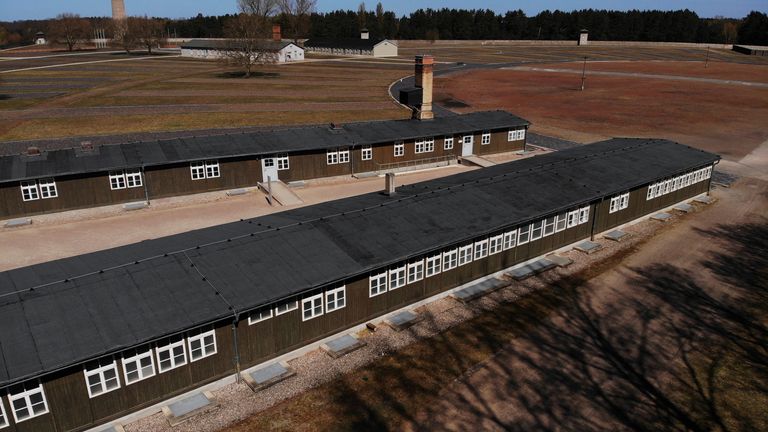A 100-year-old man in Germany has been charged with 3,518 counts of being an accessory to murder over claims he was a member of the SS at a Nazi concentration camp during the Second World War.
It is claimed the man, who cannot be named due to German laws, worked at the Sachsenhausen camp between 1942 and 1945 as an enlisted member of the Nazi’s paramilitary wing, investigators say.
The camp was set up in 1936 and it is thought more than 40,000 prisoners died there due to starvation, disease and planned SS-led killings.
He has been deemed fit enough to stand trial by prosecutors, despite his age, but it is believed there will be limits placed on how long he can sit in court during the day.
The case was handed to Cyrill Klement in 2019, as part of the special prosecutors’ office in Ludwugsburg that looks into historical Nazi-era war crimes.
It comes after prosecutors in the northern town of Itzehoe said it was bringing accessory to murder charges against a 95-year-old woman, who it was claimed worked as the secretary to the SS command at the Stutthof concentration camp.
Efraim Zuroff, a senior Nazi hunter for the Simon Wiesenthal Centre in California, said the latest cases are “vital reminders to the dangers of anti-Semitism, racism and xenophobia”.
“The advanced age of the defendants is no excuse to ignore them and allow them to live in the peace and tranquillity they denied their victims.”
The state court in Neuruppin where the concentration camp was located, will now evaluate the case and determine for themselves whether the defendant is fit enough to stand trial.
Recent legal precedent in Germany means that anyone who helped a Nazi concentration camp operate can be prosecuted for being an accessory to the murders that occurred there.
The conviction of a former mechanic from Ohio, John Demjanjuk, as an accessory to murder at the Sobibor death camp in Poland in 2011 started the legal precedent, followed in 2015 by the conviction of former Auschwitz guard Oskar Groening, which solidified the legal change.
Before 2011, courts in Germany made prosecutors justify charges by providing evidence that a suspect had taken part in a specific killing – a near impossible task given the lack of witnesses and the anonymity afforded to the guards while they were working.
Sachsenhausen was established just north of Berlin, and was intended to act as a model facility and training camp – but it ended up being the site of slave labour, mass killings at the hands of the SS, and twisted medical experiments.
Political prisoners, gay people, Jehovah’s Witnesses and criminals were initially held at the site, before thousands of Jews were brought there in 1938.
Any prisoners that were still alive at the camp in 1942 were sent to the Auschwitz death camp.
It was liberated in 1945 by the Soviets – who later turned it into a camp of their own.


